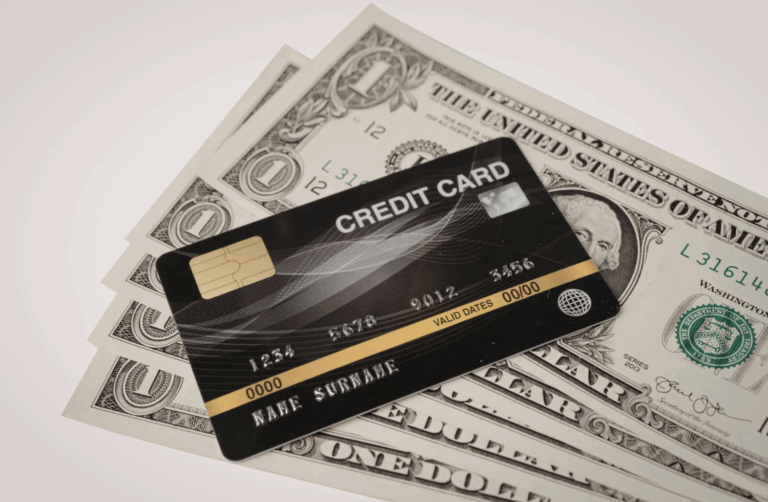If you’re served papers for credit card debt, it’s important to understand the implications and how a debt collection lawsuit might impact you. It’s also crucial to know how to respond to a summons and complaint what you can do to protect yourself.
What Does It Mean to Be Served?
If you’ve been served papers for credit card debt, it means that a credit card company or debt collector has filed a lawsuit against you. The papers you receive provide information about the creditor’s complaint, as well as what it’s asking the court to do.
Creditors may choose to serve you court papers using a personal service, such as a process server, or by sending you the documents in the mail.
Why You Might Be Served
A creditor may choose to sue you over uncollected credit card debt it believes you owe. This can occur after you’ve missed several payments or defaulted on a debt, or if the debt has been sent to a collection agency.
Creditors typically resort to debt collection lawsuits if other attempts to collect the amount owed have been unsuccessful. If the creditor can convince the court to enter into a judgment against you, it may be able to collect the funds through certain means, such as wage garnishment or property liens.
Steps to Take After Being Served
If you’ve recently been served papers for credit card debt, it’s important to act promptly. Here are some steps you can take to begin the legal process:
- Review the documents: Take some time to review the legal documents you received, so you’ll have a good understanding of what the creditor is claiming and how it wants to resolve the situation in court.
- Act quickly: Once you’ve been served, you’ll typically have 20 to 30 days to provide a response to the court. In other words, ignore the urge to procrastinate or ignore the summons altogether.
- Consider hiring a debt help attorney: While you can technically represent yourself in court, it’s often a good idea to hire an experienced debt attorney who can provide legal advice. An attorney who specializes in debt help can evaluate your options and find a solution that works for you in your budget and with the law on your side. They may also be able to evaluate your rights as a consumer under the Fair Debt Collection Practices Act (FDCPA).
How to Respond to a Court Summons for Credit Card Debt
Whether you choose to start the process on your own or to work with a debt relief attorney, here’s what you can do to respond to the debt complaint and deal with the impending debt collection lawsuit.
1. Verify the Debt
When responding to a debt lawsuit, you’re effectively requiring the creditor to prove that you owe the money, that the amount of the debt is accurate and that they have the legal right to sue you.
So, the first step you can take is to verify that you owe the debt and that the amount is correct. You can do this by checking previous communications you’ve received from the creditor, such as a debt validation letter.
If the debt is relatively old, you can also check to see if it’s time-barred based on the statute of limitations in your state laws.
2. Answer the Complaint
Once you’ve reviewed the complaint and gathered the information you have on the debt, you can answer the complaint.
If you decide to do it yourself, check the court’s website for sample letters, templates and other resources to help you determine how to word your response. You’ll want to address each aspect of the complaint with facts and also raise your defense — more on that next.
However, if you choose to hire an attorney who does this kind of debt help work regularly, they can discuss the response with you and submit an answer to the court on your behalf.
3. Raise Your Defense
Depending on the situation, there may be a few different ways you can defend yourself in a credit card debt lawsuit. Options include:
- You don’t recognize the debt: If the debt doesn’t belong to you — for example, maybe you were a victim of identity theft, or you already satisfied the amount owed — you can simply deny that you owe it.
- The details are inaccurate: If you owe the money but the complaint includes inaccurate information, you can claim that in your response.
- The debt is time-barred: Once the statute of limitations has passed on a debt, creditors are legally barred from suing you to collect — though that won’t necessarily stop them from trying.
- The creditor violated your rights: If you believe that the creditor violated your rights under the FDCPA, you can take legal action, file a counterclaim against the creditor and request damages.
Regardless of how you choose to defend yourself, the most important thing is to provide as much documentation as possible to support your claims. This may include a police report showing identity theft, a payoff confirmation, a statement showing different amounts or original paperwork showing the age of the debt.
4. Consider Debt Settlement
If you’re not sure that a lawsuit will work in your favor, it may be worth considering a settlement with the creditor. You may be able to accomplish this through mediation, arbitration or a separate settlement agreement.
Debt settlement involves negotiating with the creditor to pay less than what you owe. For many creditors, and debtors this may be preferable to taking a lawsuit to trial, which can be costly and may not give them the results they want.
Once you’ve determined that debt settlement is the best approach, consult with a debt relief attorney to help you evaluate your situation and make an offer. There’s no guarantee that the creditor will agree to your initial offer, but it can help kick off a negotiation process that ultimately works in your favor compared to a trial and help protect your rights and ultimately your finances.
5. In Dire Situations, Consider Bankruptcy
If you’re experiencing financial hardship and debt settlement isn’t an option, consult with an attorney about whether bankruptcy might be the best option for you. They can offer legal help with evaluating your situation, determining your eligibility and deciding which type of bankruptcy is the right fit for your situation.
What Happens if You Don’t Answer a Summons for a Debt Collection Case?
If you neglect to respond to a complaint by the date listed in the summons, the court may enter a default judgment in favor of the plaintiff. This essentially gives the card issuer or debt collection agency what they’re asking for without giving you a chance to defend yourself or negotiate a settlement:
- Financial impact: The court order could include wage garnishment, bank account levies and liens to ensure repayment of the debt. These could also impact you in the long run, making it difficult for you to work toward your financial goals.
- Credit impact: Judgments no longer appear on your credit report, so they won’t impact your credit score. However, the missed payments, default and collection accounts associated with the debt can cause significant damage to your credit. The same is true if you decide to pursue debt settlement or bankruptcy. Additionally, lenders can search public records to find judgments, which can make it challenging to get approved in the future.
Post-Judgment Actions
Depending on how the court case is decided, here are some steps you can take following the judgment.
If You Win the Case
Start by confirming that the judgment is final. If so, you may no longer owe the debt, or you may owe a lower amount of money. If you’re owed any damages, get details from the court about how to receive the money.
At this point, it’s also a good idea to start looking for opportunities to improve your financial management to avoid further debt problems.
If You Lose the Case
If a judgment is entered against you, the debt will become due immediately. If you can’t pay it, the creditor may use any method allowed by the judgment to collect, such as wage garnishment and bank account levies.
That said, you may still be able to negotiate a settlement, and the lender may be willing to oblige if you can prove you can’t repay the full amount.
Preventing Future Credit Card Debt Issues
Regardless of the outcome of the lawsuit, it’s important to take steps to prevent further issues with credit card debt. Some options may include:
- Getting on a budget to avoid spending more than you earn.
- Stick to cash or debit cards to minimize debt.
- Closing credit cards to avoid the temptation to overspend.
- Give yourself extra time to decide on big purchases to avoid impulse spending.
If you do decide to use a credit card to rebuild your credit after a lawsuit, use the card sparingly and make it a priority to pay your balance in full each month.





